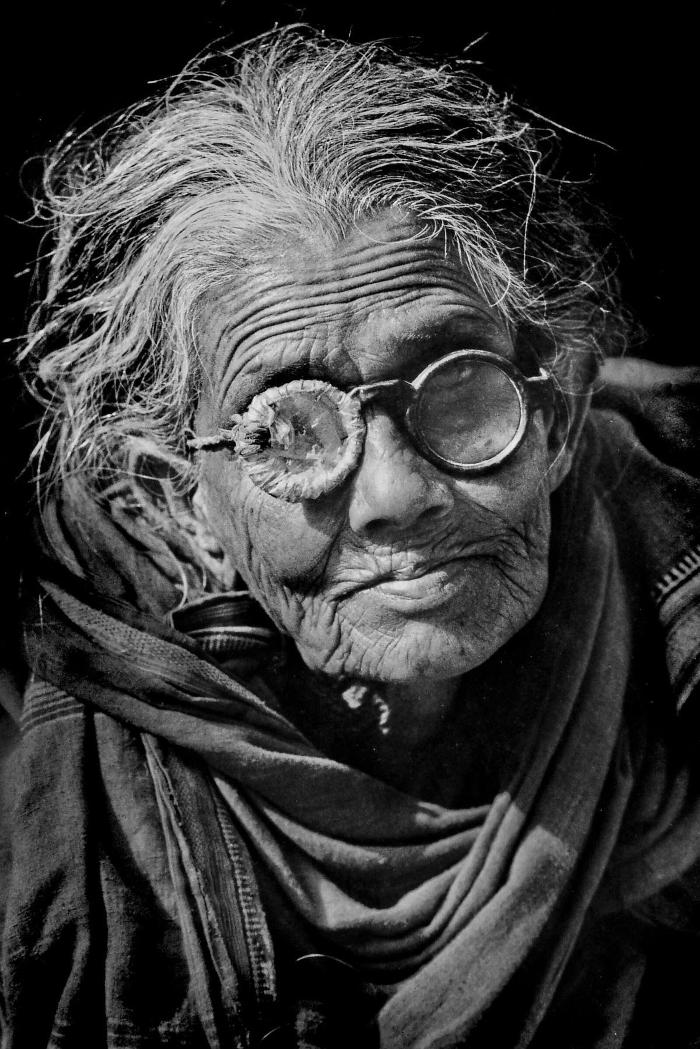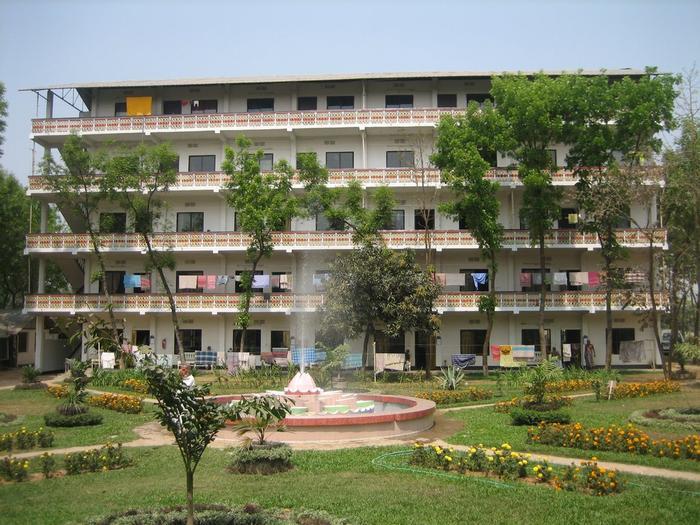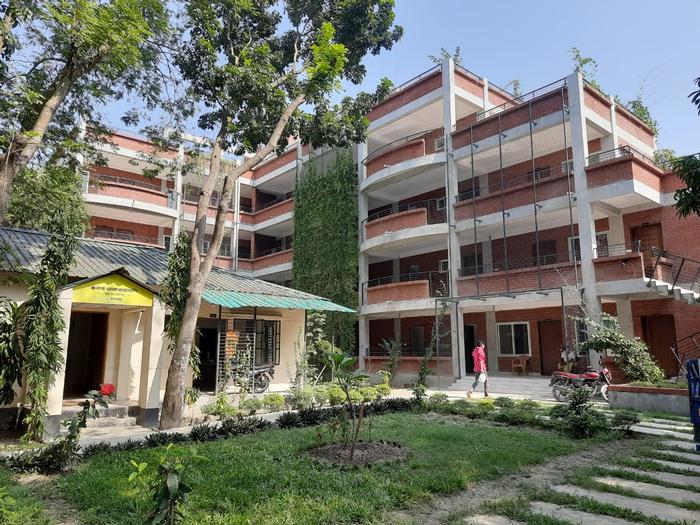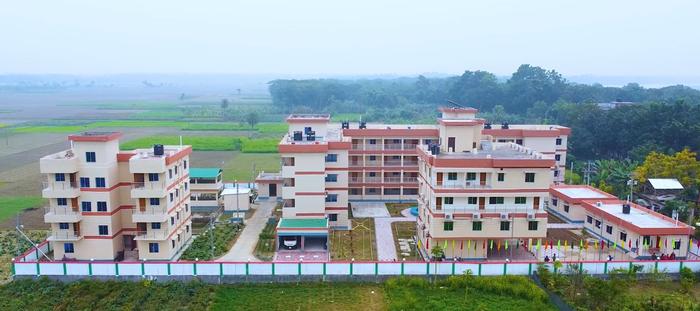[ID:4763] Integrating The Ignored: Care through ArchitectureBangladesh In our schools we were often told to look forward to the future , but in this process of forward facing we should never forget our past .If there is one thing that binds us together with our culture it’s the past .
Pan African activist Marcus Garvey wrote ,
“ A people without knowledge of their past , history , origin,and culture is like a tree without roots “ .
As a nation , we Bangladeshis bear a strong sense of national pride . We let the tales of our glorious past of thousands of years reshape our present and also future .However the strong sense of connecting the past with present and continuing it in the future does not resonate well in every perspective of our community . Here old buildings are appreciated but not the old people . It seems like the modern Bangladeshi society has forgotten that our senior citizens are our living treasure who bridges us with our past .
There are many vulnerable communities or groups of peoples in our community who face social discrimination on a daily basis . As our country is moving towards becoming more technologically advanced on average, general people are now more cautious about the rights of marginalised and discriminated groups of people . Educated youths are now vouching themselves to bring social harmony and voicing for equal opportunities . Some examples are communal efforts to rehabilitate street children and helpless young women , making better living conditions for the gypsy communities across the country and many more . But there is one community in particular who never seems to get enough attention it deserves , it seems like their very existence has been either forgotten or being ignored . They are the poor senior citizens of our country . It seems like our community doesn't like to invest in them because like the poor youth , they cannot be considered as the future of our community or country . They are the ‘ past ‘ so they are not investment friendly . Many people often are regarded as disabled , helpless , a burden of society and by many other derogatory terms. But I would like to address them as ‘ ignored '.Because they are also a part of our community who deserves equal care and facilities according to their needs but they are just ignored by the ignorants among us .
In the past decades Bangladesh was a predominantly orthodox society bearing the traditional subcontinent morals and views . Most of our families were extended where the elderly members of the family were deeply respected by all of the family members and society . Elderly family members were taken care of by the younger members of their family and their basic , physical , emotional , mental needs were met within the family.In the social context senior citizens were considered as a person who is experienced and wise, so their opinions mattered . But as the societal shift from an agricultural economy to urban industrialised economy occurred , our family structures started to break down. Extended multi generational families that used to live under one roof started to fall apart . Daughters and sons started to leave their old parents in their ancestral houses and moved to the cities .And as the number of nuclear families started to become the mainstream our senior citizens started to find themselves more and alone , isolated and excluded from the mainstream society . Another unfortunate truth is that , naturally as people grow older they tend to become less mobile and face numerous health issues related to geriatrics . Combining these factors :loneliness , social exclusion , isolation , increasingly less mobility and health issues , we get the recipe that makes senior citizens one of the most vulnerable groups of people .
There is no denial that financial solvency plays a big role in how old people are given respect in communities . If we look closely it is clear that money plays a big role In the way families treat their elderly members . In the case of middle income and high income families , we can usually see that elderly people are often given respect and served by their respective families , but it’s often the opposite case that is seen in the i lower income families . Some senior citizens from the low income families are kicked out from their home because of increasing cost of living and in the lower income households. Even children from these families work alongside their parents to bring food to the table.So when an elderly in the family is no longer able to earn , they are labelled as an economic burden and cut off from the family . These elderly are often left in the streets to fend for themselves . Even if they earn their livelihood by working , our society denies them . When they ask for available jobs they are not usually given manual labours because of poor health or age. So it becomes increasingly unlikely for them to find a job . So in a lot of cases , all they are left with is either begging for sustenance or living in the mercy of destiny .
Many senior citizens who live on the edge of the society become a victim of poverty and forced to fend for themselves because of a lack of social security net . Another very unfortunate reality for Bangladesh is that we are now being heavily impacted by global climate change and frequent natural calamities are breaking the safety net of the traditional agricultural society . Many elderly whose families become the victims of natural disasters , often left destitute when their younger family members migrate to town or cities for earning and starting a new life . Then there's always some very malicious people who come from all income groups who won’t stop at any moral values when abandoning their old , sick parents in the hands of destiny .
Again it’s not only the families where it all went wrong but our communal attitudes towards the elderly deteriorated considerably in the last few decades . As we are now a developing country , most of our society’s viewpoint is set on the benefit of the youth and children .The term’ universal design’ is not widely used in Bangladesh design methods till this date . As a result most facilities are designed for the fast and agile youths not for the slow and elderly . Alongside youth based development if we consider our traditional mindset about the elderly : “ Old people should stay home most of the time , because they can;t move easily ”, “ elderly are not usually the active policy makers of our society , so their participation in decision making processes don’t matter much as youths “ .If we combined all the problems and prejudices mentioned above, we can see why Bangladesh is so badly designed for elderly .
If we include the recent global event Covid pandemic, it clearly showed us how vulnerable our lower income senior citizens are in our country . Although the mortality rate in Bangladesh was relatively low compared to the most populous countries in the world , the major victims were the elderly aged 60+ . Among them majorly were those who were homeless , not able to get proper treatments in time and lacked proper nutritions .
Homeless , penniless elderly people deprived of basic human rights and isolated from the family live the most inhumane life one can possibly imagine . Some of them live on the streets or near local markets. Many of them beg from door to door. Some days they do not have anything to eat at all . They shiver with severe illness near a hospital but don’t dare to enter , because security guards don’t let any beggars enter the hospital . This scenario is truly heartbreaking to witness that sometimes how we as a human can dehumanise other human beings .
In the midst of such cruelty and lack of empathy, there are few exceptions who look forward to holding the hands of the helpless ignored elderly women . An old age home called ‘Apon Nibas’ located in the Mainartek area of the Northern Municipality in the capital city is one of them .The name Apon Nibas means self home which resonates with their given services . Lack of funding and proper infrastructure couldn’t stop its founding committee from achieving their goal to house the ignored . Since its establishment in 2010 , it has been providing free food, shelter and medical care service to the rescued elderly women.Most of the women are picked up from the streets of Dhaka and other places of the country and some are procured through police/hospital authorities.A good percentage of the reduced have been rehabilitated and sent to their own homes.
Above paragraph we can see that a significant approach has been taken despite having financial limitations, but there are also examples of some philanthropic caseworkers and organisations that have stepped in by donating plots and money to create a safe haven for the lower income elderly . One of Bangladesh's first most establishments to provide free shelter of elderly is The ‘Old Rehabilitation Centre' in Gazipur. This centre provides shelter , food , medical care , recreational and social service free of cost to the needy elderly . Established in 1987 , this old age home illustrates our placemaking thoughts towards housing the lower income elderly . Though from an architectural perspective this old age establishment might seem very plain but a thoughtful design approach can be seen. Large green outdoors has been provided to encourage mobility among the elderly. Shaded semi outdoor areas and combined indoor recreational facilities are provided to promote socialisation among the elderly who came from different parts of the country .
In recent years , designers are taking more and more thoughtful and organised approaches when it comes to housing the elderly . The Dhamrai-based 'Shailan Probin Nibash' meaning ‘ Shailan Old age home ‘ was opened in 2022 . It was founded keeping in mind the increasing number of helpless elderly in the greater Dhaka metropolitan area . This facility offers smaller outdoor space but more sophisticated interior spaces in much more modern and urban settings.Here all the needs of the elderly including food ,medicine , medical services , recreations are fulfilled . Even in the limited plot area , there are some green outdoor and semi outdoor spaces that have been included to promote physical activities among the elderly .The main building is made out of locally made bricks , which gives it a very sophisticated looking exterior as well as interior .It is apparent that the mentality toward creating good design for those who cannot contribute monetarily has shifted positively throughout the decades.
More or less architectural design approaches have been taken in various senior citizen based facilities throughout Bangladesh , but there are few examples where co-housing was taken as a design approach to solve the problems like social exclusion , loneliness etc that our ignored senior citizens face on a daily basis. ‘ Amader Bari‘ -meaning our house, a cohousing establishment located in Jessore was completed in 2022 houses both senior citizens and children from lower income backgrounds . This cohousing is partly inspired from the traditional extended family structure and dynamics of Bangladesh where the grandparents and grandchildrens used to spend time with each other and take care of each other . The cohousing compound is also designed keeping in mind the traditional village household layout that was popular in rural Bangladesh. ‘ Amader Bari is surrounded by nature , different buildings like school , dormitory , health facilities , farm etc encircle a large middle open courtyard mimicking the traditional Bengali household layout . Besides providing shelter and basic needs , this project also aims to promote self-sufficiency, physical and mental well-being by economically engaging in activities like : fish and poultry farming, agriculture , and traditional handcrafts .There are also education facilities in basic, technical, and professional fields so any elderly wants contribute in the establishment , they can do it with education and work . This makes the whole process very dynamic and uplifting , where an elderly can also feel as an important member of the community .
While designing for the elderly who are often ignored and forgotten by the community, I think the most preferred way could be designing with empathy . Architects with empathy towards the vulnerable will be able to connect with them better , and therefore create more functional and sustainable designs . Now that the global pandemic has taught us many lessons I think it’s the perfect opportunity for us to rethink the whole design process . This time not from our sparkly eyes but the grey weak eyes of the elderly who are in the sunset years of their lives . It is clear that Bangladesh has made some improvements in this design category, we are still far behind than most of the world . There are few ideas that can help us create more senior citizen friendly designs in the future : -
We are the youths of today representing the present and the near future , youths are like a shiny morning or glorious midday . But as our 24 hour long day contains sunset and night we will also pass through our afternoon and in the next few decades will enter our sunset times . At present ,we have to take care of the past so that we are able to make examples for the future when we will become the past .
If you would like to contact this author, please send a request to info@berkeleyprize.org. |




